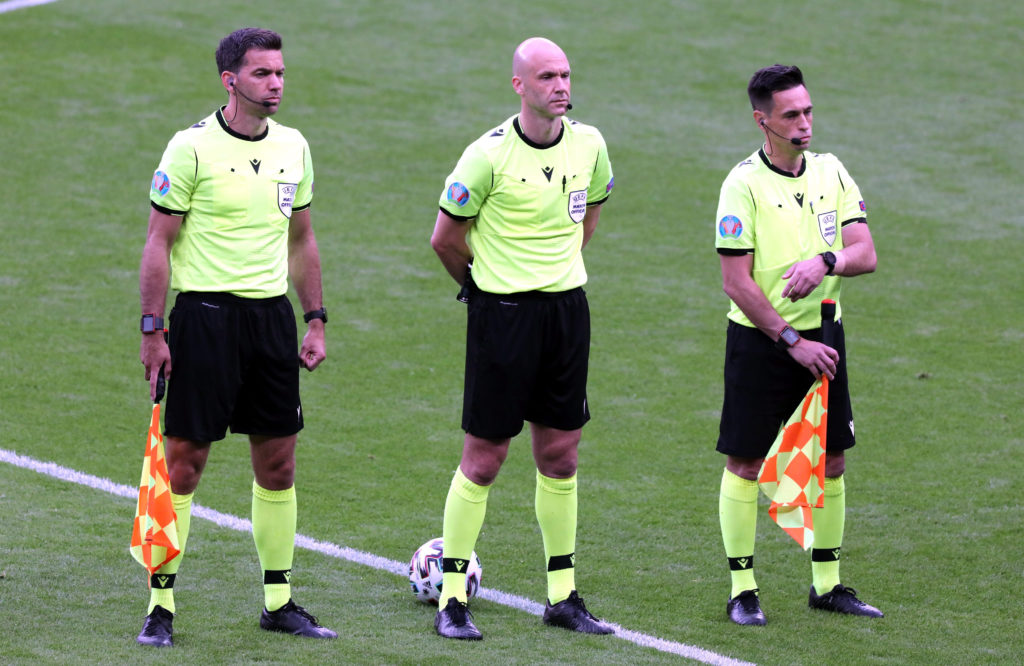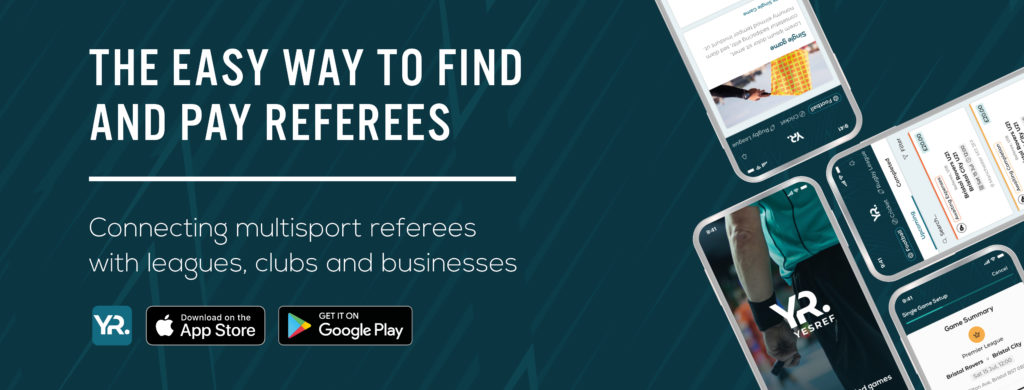Rule Number 1: Every Decision Counts
If there is one position in sport where every decision counts, it’s as a referee. Often the difference between delivering a game successfully, making an error on a key match incident, or being selected for a cup final can come down to just one or two decisions. This is especially true at the elite level. Because of this officiating is now at a point where tapping into the mental aspects of performance has become widely accepted. Mental Toughness is an essential part of success, as a few, seemingly insignificant, decisions could mean the difference between achieving your refereeing dreams or missing out on them completely.
Despite this most competitive officials love the fact that their part in sport is objective in nature. Refereeing is often instinctive when it comes to making decisions on the basis of what you see. However, this is also the hardest aspect of being an official. Because their success is so largely determined by results, referees often fall into the trap of focusing too much on outcomes. Where they’ll place in the banding table or how close they are to earning a promotion are often front of mind. The consequence of this is that they forget about all the smaller processes required to improve and succeed. Officiating psychology being ones of these groups of processes.
Reflections of My Own Refereeing Career
I myself am an active referee. During my early career, I remember being midway through a season once only to give up when I saw that I was falling behind my colleagues. Looking back on this now, I realise that rather than focusing on the other officials and what they were doing, I should’ve been focusing on my game plans throughout the season and sticking to this just the way I had prepared in the lead up to matchdays. It’s challenging not to become caught up in where we’re ranked compared to the referees in competition with us for promotion. But we need to have an understanding of what we have control or influence over, so that we can shift our focus from what we have minimal influence over (i.e. our colleagues) back to what we have maximum influence over (i.e. my game plan).
Why Is This So Important For Better Refereeing Psychology?
While we are more emotionally invested in our preferences or the outcome of a game, our level of influence over this is only small. We can’t stop a player committing an act of violent conduct or serious foul play. What we can do however is employ the actions and processes we practise when we train and prepare so we can execute them to the best of our ability. And one way that we can enhance our ability to be able to do this is through formulating and practising a game plan.
Sticking To A Game Plan
Whilst marks are important indicators of improvement and where our performance is currently at compared to others, having a game plan encourages us to align our focus, set our expectations and base our confidence on the things we do in training and preparation. A game plan accounts for all the smaller processes that go into the game. For example, getting ourselves into the best positions to recognise foul play.
With a significant commitment to practice and preparation, many of these above actions can become second nature, therefore, minimising on matchday decision making.
As performance coaches what we want to try and understand is what allows a referee to look back on their performance and confidently say that they gave it 100%? If their answer is predominately outcome-focused, for example, “I didn’t give it 100% because I didn’t get everything correct”, this is an issue. So, reframing their idea of a good performance so that it aligns with actions and effort becomes very useful. If their answer is “I know I gave it 100% because I gave myself the best chances on the field of play”, well that’s great, but what processes allow you to do this? Was it because you dealt well with foul play?
What Do Process Driven Game Plans Look like?
For referees who do not already have a game plan, creating an action-based checklist is a great way to empower them both in preparation for a game and on matchday.
Having the official evaluate their performance in terms of what aspects of their game plan they did and did not adhere to provides them with an opportunity for genuine improvement. They either acknowledge that although they may not have achieved the outcome they’d hoped for they understand there’s nothing more they could have done. Or they recognise which aspects of the game plan they didn’t stick to, how this impacted their performance and make arrangements to correct this for next time. Having them focus on these processes before and during the match essentially gets their head out of the way. It allows their body to do what it knows how to do and encourages them to take ownership of their performance and come up with ways to improve it.
Using Visualisation to Practice your Game Plan
Many people outside of refereeing don’t realise the level of strategic planning that goes into a game. The same way a dancer would rehearse their choreography, or a diver would practice their competition dives, referees practice their game plan at training to increase the likelihood that on matchday they can stick to it. However, what separates officials from many other types of athlete is that they don’t always have access to the setting where their performance takes place – the pitch. One way around this is through the mental rehearsal of their game plan, aka visualisation.
There’s a whole range of reasons why an official might engage in visualisation. The most common is for the practice effects it has on performance. Visualisation can take place from the 1st or 3rd person and is a mental process whereby the referee uses imagery to rehearse the aspects of their performance “in their mind’s eye”. For a referee, this type of rehearsal would mirror their game plan and include when to take breaths, increase their stroke rate, change their stroke style and other processes which go into a race.
Have You Seen The Film, Cool Runnings?
Those of you who have seen the 1990’s classic film, Cool Runnings will know what visualisation looks like when you think about the scene in the bathtub. (If you haven’t seen it go and watch it and look out for the scene in the bathtub).
However, a referee who only visualises the ideal parts of their performance is setting themselves up for a hard time on matchday. There are more physiological variables. These include muscular fatigue and lactic acid build-up. It’s really important to incorporate these physiological barriers into a visualisation routine so that we know how to respond to them if they occur on matchday. Visualising possible barriers to performance, when they’re likely to occur and how you will respond to them will increase the likelihood that you’ll be able to overcome these barriers to performance on matchday, as they will have been part of your rehearsed game plan.
As Referees, You Always Officiate How You Train
What makes game plan rehearsal so important, whether it’s pitch based or through visualisation, is that with fatigue our attention, concentration and focus deteriorates. When this happens our chances of sticking to our game plan also deteriorate as doing this requires mental effort, leaving us with only physical strength and stamina to rely on to get us to the final whistle. But who would want to limit themselves to utilising only the physical aspects of performance when we have the opportunity to use this in conjunction with mental toughness?
In refereeing, you will officiate how you train. If you practice your game plan during and away from training, it becomes muscle memory just like any other skill. Over time, the processes become more automated and require less mental resources to execute, and in the last 10 minutes, this will make all the difference.
At The Third Team I work individually and in collaboration with different professionals where I have developed workshops associated with Resilience and Mental Toughness Development to help referees. The workshops are interactive, where referees are encouraged to open up and share their experiences to help each other.
Feel free to contact me if you’d like to know more about my workshops and how I could help you or your officials.
Best Wishes,

Nathan Sherratt
Referee Educator & Managing Director of The Third Team

Nathan Sherratt
Nathan Sherratt, Referee Educator, Resilience Trainer and Managing Director of The Third Team. A Mental Toughness Practitioner based in County Durham, North East England.


